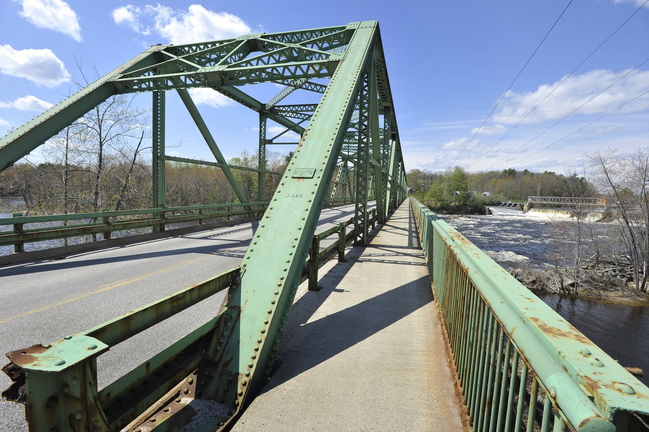AUGUSTA — Maine residents on Tuesday approved borrowing proposals totaling about $150 million that would pay for maintenance and improvements for roads, schools and armories.
Voters approved all five bonds that resulted from a compromise between legislative Democrats and Republican Gov. Paul LePage. They were the only items on the statewide ballot.
The biggest bond was a $100 million proposal for road and bridge projects that supporters say will bring $150 million in matching funds. The others were $14 million to overhaul armories, $15.5 million to improve university facilities, $15.5 million for classroom improvements in community colleges and $4.5 million for a science building at Maine Maritime Academy.
Maria Fuentes from the Better Transportation Association said the matching funds made the transportation bond package a good way of funding needed improvements.
“Maine people understand that we need to invest more in our transportation system. It’s clearly something that impacts just about everyone in Maine on a daily basis,” she said. “We’re glad that the citizens agreed that we need to make more investments in our roads and bridges and other modes of transportation.”
Mainers generally support bonds, but not always.
Residents rejected $11.3 million worth of bonds for capital improvements for universities and community colleges just last year.
University of Maine System Chancellor James Page thanked voters for making “investments in students and investments in jobs.”
“Those upgrades will create immediate local construction jobs, and they will create a better learning environment for our students to receive education and training for careers that Maine needs, Maine employers have, and Maine students want,” he said.
There also were several local measures up for a vote on Tuesday.
Voters in Portland approved a proposal legalizing the possession of small amounts of marijuana for recreation, while residents in South Portland rejected a proposal aimed at preventing the flow of tar sands oil to the city. The thick, gooey oil is more difficult to clean up than conventional crude oil, contains harmful chemicals and releases more greenhouse gases, environmentalists say.
Turnout was heavy in Portland and South Portland, but light elsewhere.
Secretary of State Matthew Dunlap predicted turnout will be in the range of 15 percent to 25 percent of Maine’s voting-age population. The lowest that he could recall was 13 percent.
Maine typically boasts one of the nation’s highest voter turnouts, but there was no governor’s race, Senate race, presidential race or major statewide ballot initiative to draw voters this year.
Election officials said the lower-than-normal turnout could be helpful as the state used 400 new voting machines featuring digital scanners for the first time.
Equipped with digital displays, the scanners can catch obvious problems, like someone checking too many boxes, providing an alert indicating the need for a do-over.
Send questions/comments to the editors.


